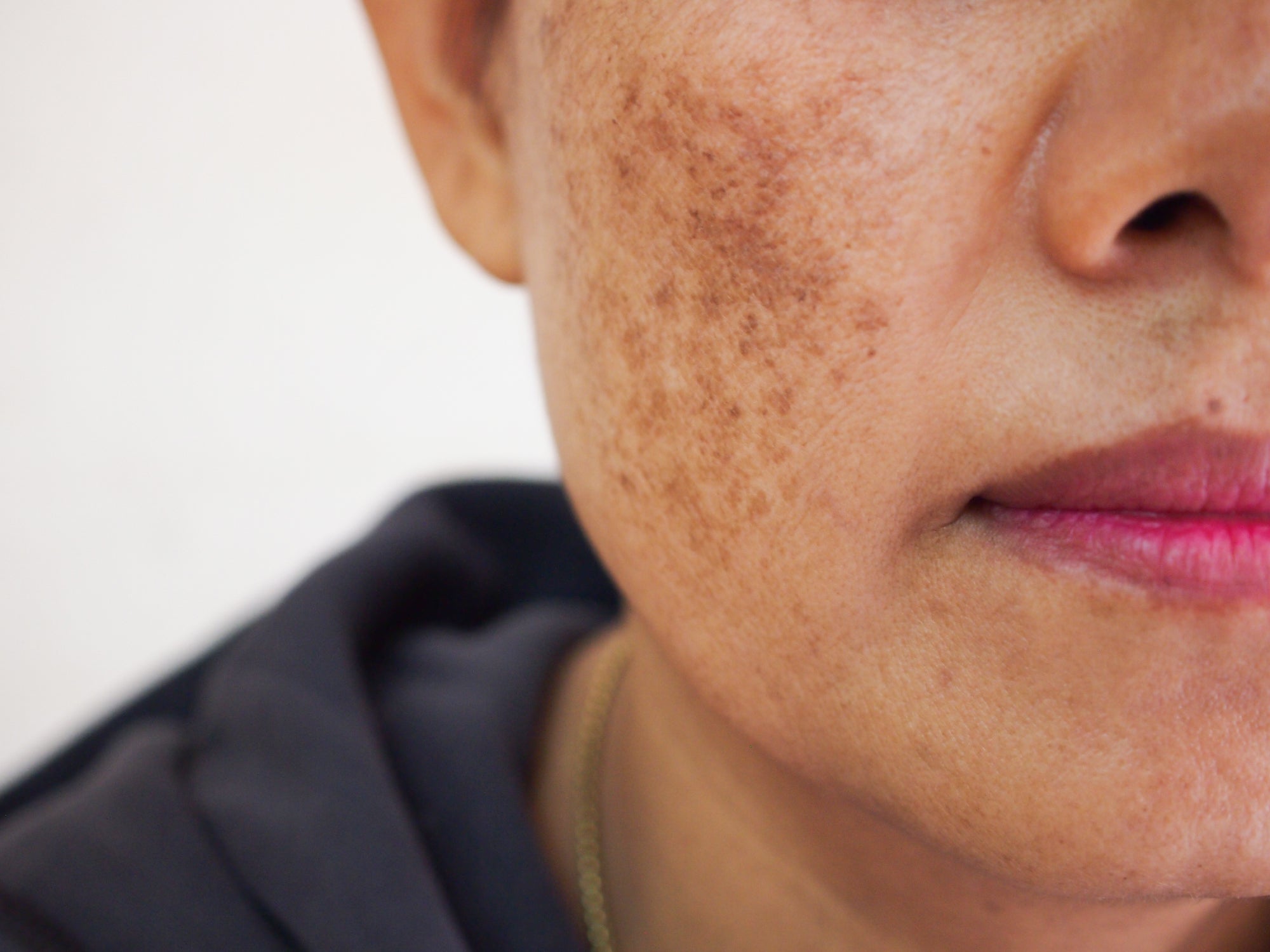Melasma is a common condition, characterised by patches of darker skin especially on the face, but what can you do to treat it?
Melasma might be harmless, but a serious case can affect self-confidence and make life more difficult for sufferers. It tends to be triggered either by sun exposure or hormonal changes, and the one can certainly aggravate the other.
Pregnant women, for example, often notice a melasma ‘mask’ on their face during pregnancy, which looks like dark, blotchy patches across the cheeks and forehead; it usually fades a few months after the baby is born, but in some people can last longer, and can even persist for many years.
What can you do about it?
-
Stay out of the sun
Both during pregnancy or hormonal treatment/changes, and afterwards! Further sun exposure after melasma has appeared can mean it takes longer to fade. Be meticulous about applying high factor sunscreen and keeping out of direct sunlight.
-
Keep your skin in good condition
Make sure your skin has everything it needs to support its natural cycle of repair and regeneration. Skin cells replace themselves every 3-4 weeks, so any treatment or regime needs to be undertaken long enough to last through at least an entire cycle. Given the depth of the extra melanin (pigment in the skin) which needs to reabsorb into the deep layers of skin, it can take many cycles of skin regeneration for anything to noticeably improve. Keep your skin clean with SLS-free, non-irritant, unperfumed cleansers and make sure you moisturise daily.
-
Use nourishing emollients
Feed your skin with nutrients, such as essential fatty acids and vitamin A (a natural trans retinoic acid); rosehip, sea buckthorn and borage oils are particularly good sources of these nutrients. Think of the creams as a daily vitamin supplement, taken topically rather than as a tablet!
-
Seek professional treatment
If your melasma is affecting your self-confidence on a daily basis and causing you distress, consult a professional dermatologist for advice. They may offer you a course of retinol (which speeds the regenerative process), chemical peels or laser treatment.
...and remember: never use skin-lightening creams without qualified dermatological advice!
Although it can be difficult to tell whether any treatment or skincare routine will have much of an effect on melasma, it's sensible to treat your skin very carefully and give it the nutrients and moisture it needs to stay in the best possible condition.
Recommended products:
Balmonds Daily Moisturising Cream
with shea butter and calendula
Balmonds Cooling Cream
with shea, menthol, aloe vera & lavender
Balmonds Intensive Facial Oil
with rosehip, calendula, lavender & chamomile

